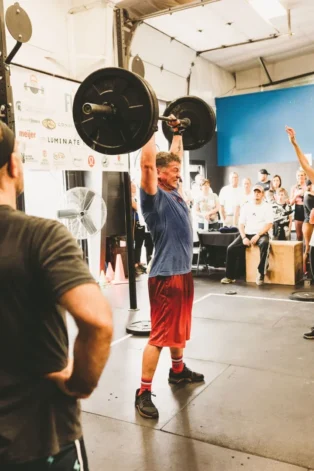Unfortunately, I’ll never know.
So I promise you, I understand your performance anxiety. For those of us with a strong athletic identity, winning and losing can determine our worth. And that pressure hurts our performance.
I wish I had answered my “what if I don’t break 2:10?” question back in high school. I would have realized that nothing would have changed other than an unpleasant experience of disappointment. Because I was failing each week and my friends and family still loved and supported me, my girlfriend didn’t break up with me. My worth and value was in many other aspects of who I was.
If I knew that earlier, the pressure would have been relieved and I would have felt lighter and ran faster of sure.
So please know this … You are more than your accomplishments. You are more than the wins and losses, your position on the team, your body shape and size, your job title, your income. These are things that you do, not who you are. You are so much more than that.
As both a clinical sport psychologist and Certified Mental Performance Consultant, I help high achievers (athletes, performing artists, business men and women) overcome obstacles to excellence.
The “I am good enough” feeling after a win or achievement doesn’t last very long. The need to achieve again shows up very quickly. It becomes a treadmill of constant running and not getting anywhere. It’s exhausting.
A life fueled by not feeling good enough risks getting out of balance. With the need to achieve, people can let work or training take too much of a priority and neglect family, health, recreation or recovery. Mental health can suffer with depression and anxiety. The pressure to win can become all-consuming.
My clients struggling with performance anxiety have all this in common.
I realized I was sending the wrong message.
I looked at my business card and tore it in half.
By stating average wasn’t good enough, I was inadvertently shaming those who didn’t win … which is most of us most of the time! It is absolutely the wrong focus. I don’t want my clients running away from failure.
I want them running toward life-giving goals.
So now, when I work with clients, it is all about focusing on those admirable qualities and actions that give their lives meaning and purpose. Learning how to lean in to the adversity and deal with the fear of failure that may arise.
Because it isn’t the outcomes that defines you. It is the character you demonstrate as you pursue those dreams. Maybe that is excellence in a particular area. Maybe it is harmony across several. You get to decide what is good enough.







